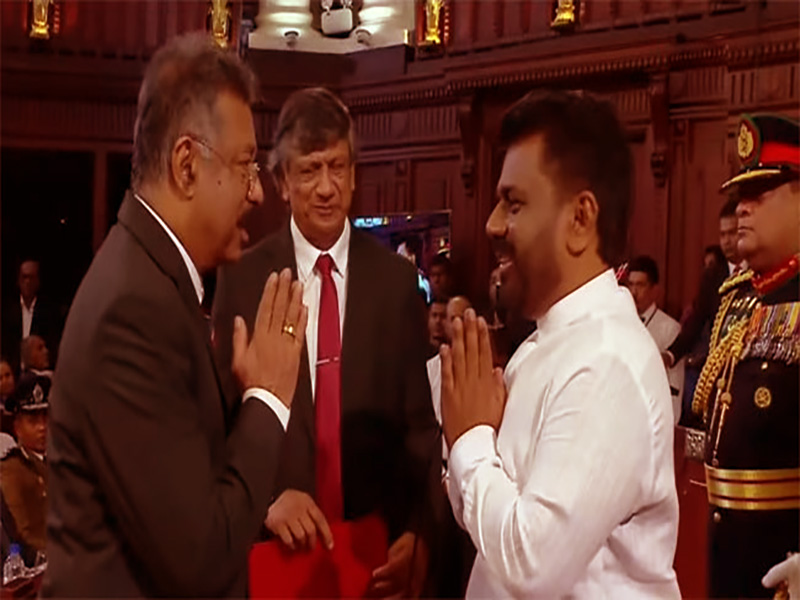Anura Kumara Dissanayake has just been officially inaugurated as the 9th Executive President of Sri Lanka. The ceremonial swearing-in took place at the Presidential Secretariat in Colombo, with Chief Justice Jayantha Jayasuriya presiding over the proceedings. This marks the beginning of Dissanayake’s presidency in the Democratic Socialist Republic of Sri Lanka.
nura Kumara Dissanayake was sworn in as Sri Lanka’s new President at the Presidential Secretariat, where he arrived to a warm reception from party supporters and well-wishers. After taking the oath of office in a modest ceremony, he made a brief statement underscoring his dedication to serving the nation and its people. The 56-year-old leader was declared the winner by the Election Commission the previous night, following the second round of vote counting. Dissanayake secured victory over his closest contender, Sajith Premadasa of the Samagi Jana Balawegaya (SJB), making history with his triumph in the presidential election.
In the presidential election held on Saturday, none of the candidates secured the required 50% majority in the first round of voting. As a result, a second round of counting was initiated by the Election Commission, which led to Anura Kumara Dissanayake, the leader of the National People’s Power (NPP), emerging victorious. Widely known as “AKD” in Sri Lanka, Dissanayake made history by becoming the country’s first President to be elected through a run-off. His party, Janatha Vimukthi Peramuna (JVP), which had long been on the political margins, gained a new identity and significance with this landmark victory.
Under the leadership of Anura Kumara Dissanayake, the Janatha Vimukthi Peramuna (JVP) has risen to prominence, driven by calls for anti-corruption measures and a change in the political culture. Hailing from the rural town of Thambuttegama in the North Central Province, Dissanayake holds a Bachelor of Science degree from the University of Kelaniya. He joined the JVP in 1987, during a period of intense anti-Indian insurgency, and has consistently championed the fight against corruption and the protection of people’s rights throughout his career. His recent presidential victory signals a significant shift in Sri Lanka’s political landscape, reflecting the public’s desire for fresh leadership and a new political vision amidst the country’s ongoing economic and political challenges.







